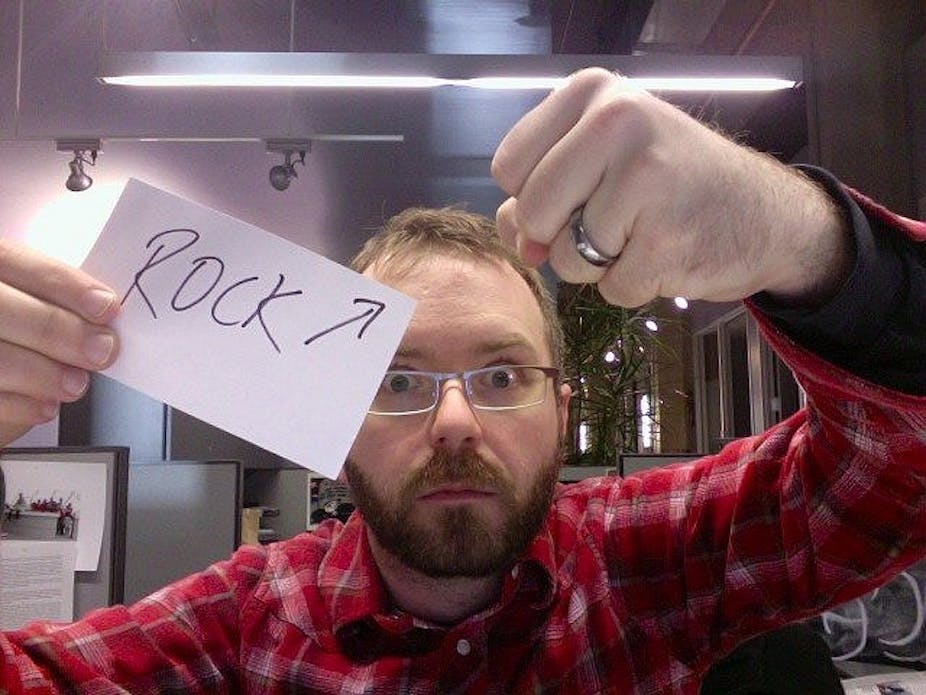Humans instinctively copy their opponents while playing rock, paper, scissors, suggesting the urge to imitate others is deeply etched in the subconscious, a study has found.
In an experiment conducted by researchers from the University College London’s Department of Cognitive, Perceptual and Brain Science, 45 subjects were studied while playing the game. A financial prize was offered to incentivise winning.
First, the subjects were observed playing while blindfolded. Under these circumstances, the number of games ending in a draw was a third, in line with statistical probability.
In a second experiment, one player was blindfolded and the other was not. Under these conditions, the number of games ending in draws was significantly higher – suggesting the subject who could see was unconsciously copying their blindfolded partner.
Richard Cook, lead author of the paper, said the instinct to copy other humans starts at birth.
“Parents seemingly can’t help but imitate the facial expressions of their newborns,” he said.
“This experience causes the impulse to imitate to become so ingrained it is often subconscious, for example when one person starts tapping their foot in a waiting room it is not uncommon for the whole room to start tapping their feet without thinking.”
“The present finding confirms that imitation is often ‘automatic’ in the sense of being hard to stop.”
The study was published in the journal Proceedings of the Royal Society B.

